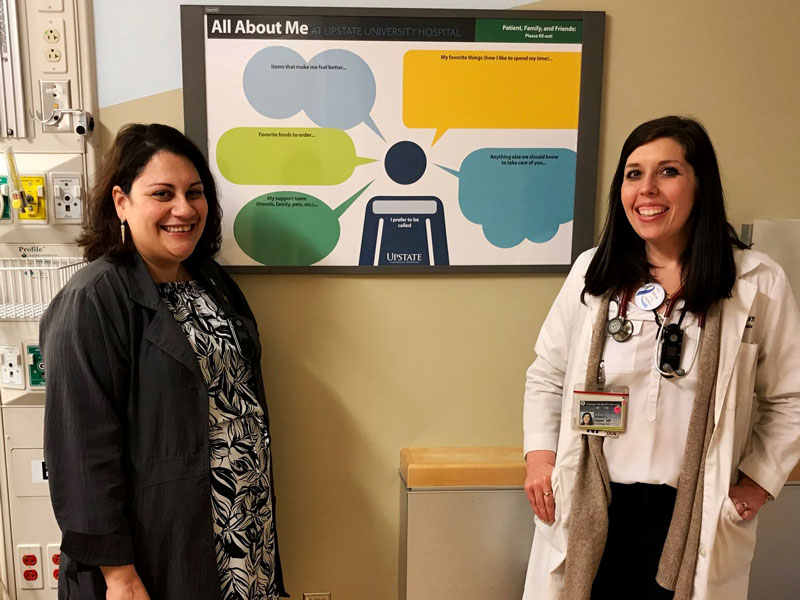Why Pretesting Counseling Is Critical in the Age of Consumer Genetic Tests

On March 6, 2018, 23andMe—an at-home genetic testing company—announced their direct-to-consumer genetic test (DTCGT) would include DNA results for the three common founder BRCA mutations commonly seen in people with Ashkenazi Jewish ancestry. This was big news because DNA results for the BRCA mutations had been previously available on the 23andMe panel report until the U.S. Food and Drug Administration removed them in 2013.
- Read more about Why Pretesting Counseling Is Critical in the Age of Consumer Genetic Tests
- Add new comment
House Overwhelmingly Passes Final Opioid Package; Texas v. the United States Could Impact Patients With Preexisting Conditions; Lawmakers Who Forged ACA Look Back

Through tremendous bipartisan support, the House of Representatives passed comprehensive opioid legislation to address the national abuse epidemic in the United States on June 22, 2018. For many healthcare advocates, an opioid legislation package has been a long time coming. The opioid crisis has been in the news since before the 2016 presidential election but was brought to the forefront during that campaign.
- Read more about House Overwhelmingly Passes Final Opioid Package; Texas v. the United States Could Impact Patients With Preexisting Conditions; Lawmakers Who Forged ACA Look Back
- Add new comment
Take Charge of Developing Your Leadership Skills With the LDC

I have learned a good deal about leadership through networking and leadership opportunities with my local ONS chapter, project teams and task forces, and serving as a board member.
Two ONS Priority Health Bills Make Progress Out of House Energy and Commerce Subcommittee on Health

On June 27, the House Energy and Commerce Subcommittee on Health passed by voice vote two health bills that have been among ONS’s top legislative priorities: the Palliative Care and Hospice Education and Training Act ([PCHETA], H.R. 1676) and the Title VIII Nursing Workforce Reauthorization Act (H.R. 959). The bills are now poised for consideration by the full House Energy and Commerce Committee.
- Read more about Two ONS Priority Health Bills Make Progress Out of House Energy and Commerce Subcommittee on Health
- Add new comment
How Can Nurses Help Patients Understand End-of-Life Options?

When physician-assisted death mandates were passed in states like Oregon, Washington, and California, guidelines were established for practitioners as part of election mandates. However, in states like Montana and Vermont, the legalization of assisted death went through the legislature without process and practice guidelines. Therefore, practitioners have little or no framework to implement the process of medical aid in dying.
What to Do When Your Patients Talk About Medical Aid in Dying

Despite groundbreaking treatments, novel medications, fast-tracked drug approvals, and cutting-edge science, a terminal diagnosis is still a reality for many patients with cancer. Having end-of-life discussions with patients and their family members is a difficult part of oncology nursing, but it’s necessary to provide the highest quality of care and education possible. With more news reports emerging about states introducing—and passing—medical aid in dying legislation, oncology nurses will face questions about the process from patients and caregivers.
Focusing On the Little Things Can Make a Big Difference

Imagine being in a hospital, unable to verbally communicate and having to find a way to get across your basic human needs. As oncology nurses, we take care of a variety of different patients: some able to make their needs known and some who unfortunately cannot.
ONS Develops Hazardous Drugs Safe Handling Toolkit for Oncology Nurses
- Read more about ONS Develops Hazardous Drugs Safe Handling Toolkit for Oncology Nurses
- Add new comment
FDA Approves Encorafenib and Binimetinib in Combination for Unresectable or Metastatic Melanoma With BRAF Mutations

On June 27, 2018, the U.S. Food and Drug Administration (FDA) approved encorafenib and binimetinib (Braftovi and Mektovi) in combination for patients with unresectable or metastatic melanoma with a BRAF V600E or V600K mutation, as detected by an FDA-approved test.
- Read more about FDA Approves Encorafenib and Binimetinib in Combination for Unresectable or Metastatic Melanoma With BRAF Mutations
- Add new comment
Latest FDA Cancer Treatment Approvals Trend Toward New Indications

What is unique about the most recent U.S. Food and Drug Administration (FDA) approvals in the oncology/hematology area is that almost all are for new indications of existing agents as opposed to new agents. This is not surprising because many of the agents target specific bioassays or tumor markers instead of a specific disease site. Oncology nurses need to be aware of the changes because treatments that they have become accustomed to giving for one indication may soon be given for others as well.





